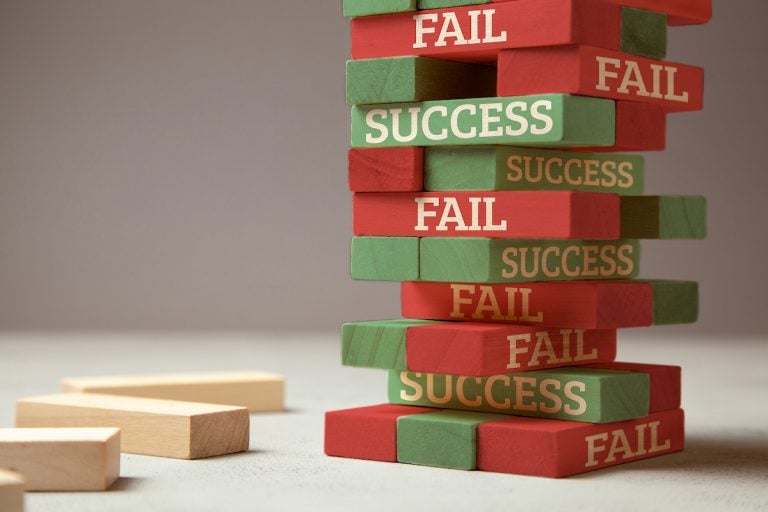Failing Better
Listen 49:23
Image: ADragan
In science — and in life — failure is both a stumbling block and a building block. We regard failure as the enemy of success — but really, it’s just part of the process. Mistakes and missteps, blunders and slips are often stepping stones toward places of greater knowledge. But failure can also take us on detours, deflate our ambitions, and lead us down blind alleys. In this episode of The Pulse, we hear stories about failure — what we can learn from it, how we cope with it, and how we can harness its potential by observing the way it affects our thoughts and behavior.
Also heard on this week’s episode:
- Progress depends on acknowledging our mistakes. So why does it take us so long to admit when they happen? We investigate the mental block that prevents us from owning our failures in the moment, and what we could learn if we did.
- Psychologist Katherine Dahlsgaard explains the developmental logic behind a childhood superpower: the ability to fail constantly, and not to care.
- By day, James Heathers is a researcher at Northeastern University — by night, he’s a “data thug,” a self-appointed detective who tracks and exposes shoddy and fraudulent science.
- Ben Gross — vice president for research and scholarship at the Linda Hall Library in Kansas City — tells us the story of the last consumer electronics product RCA ever tried to release, and how the line between success and failure is sometimes blurred.
- We hear about a new documentary from Frontline and ProPublica called “Right to Fail.” It digs into an ambitious effort to give New Yorkers with severe mental illnesses the chance to live independently.
Segments from this episode
WHYY is your source for fact-based, in-depth journalism and information. As a nonprofit organization, we rely on financial support from readers like you. Please give today.






